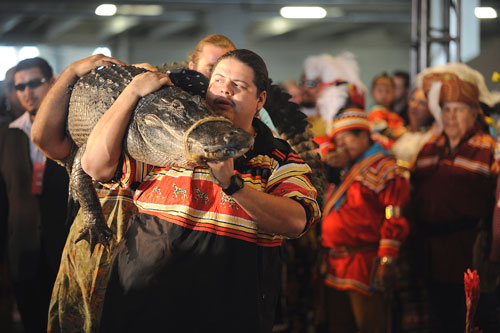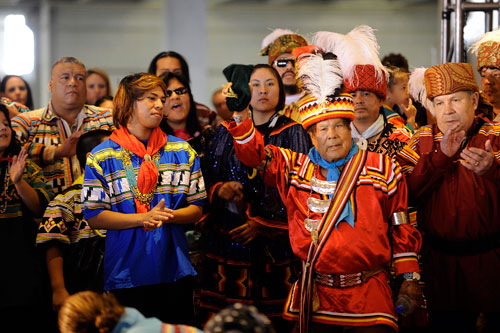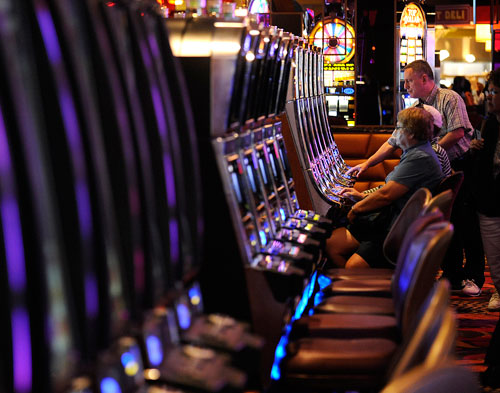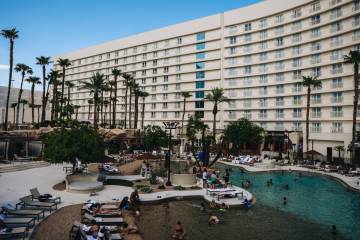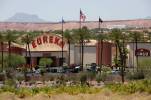Proposed Vegas-style casinos in Florida face key vote
FORT LAUDERDALE, Fla. -- Reworked legislation that could bring three Las Vegas-style hotel-casinos to South Florida will face a crucial vote today in a state House panel that could kill the controversial issue.
And even if the bill wins approval from Florida's House Business and Consumer Affairs Subcommittee, the legislation faces an uphill battle.
The legislation, which would authorize three new nontribal casinos in Florida, is being closely watched by gaming industry leaders in Las Vegas. Las Vegas Sands Corp., Wynn Resorts Ltd., Caesars Entertainment Corp. and MGM Resorts International have been linked to potential interest in opening hotel-casino developments in South Florida.
Watching the legislation has been difficult -- it's a moving target. Legislative staff in Tallahassee late Wednesday gave the legislation a heavy rewrite, just days before it is to go up for a vote.
Among the proposed changes was replacing an independent gaming commission spelled out in the Senate version of the bill with a state Department of Gaming Control under the auspices of the governor and key lawmakers. The new department would issue licenses and control all aspects of gaming in Florida, a state that is not known for clean government.
"The last thing we want to see are elected officials who accept political contributions having a say on who gets a gaming license," said Andy Abboud, vice president of government relations for Las Vegas Sands, which has been exploring the prospects of a hotel-casino development in Miami. Like the other Las Vegas gaming powerhouses, the Sands has lobbyists working on lawmakers in Tallahassee.
Abboud said he hopes the final bill would make the gaming commission independent.
"We know this is a long process, but staff made some changes that we don't agree with," Abboud said.
Regardless of the details, the expansion of casino gambling in Florida is a matter of fierce debate.
Seminole Gaming Chief Executive Officer Jim Allen, whose company operates seven Indian gaming-owned casinos in Florida, including the Seminole Hard Rock Hollywood and the Seminole Hard Rock Tampa, said tribal leaders oppose any casino expansion bill. He said the legislation, which could lead to increased competition, "seems to change on a daily basis."
Allen, who was participating the grand opening of a $150 million expansion to the Seminole Casino Coconut Creek on Thursday, said the debate has caused the tribe to delay other projects in Florida, including a 1,500-room addition to the Coconut Creek property and hotel expansion at both Hard Rock properties.
Allen said the Coconut Creek expansion that opened with tremendous tribal fanfare Thursday has been in the works since 2006, long before the casino legislation came about. The project expanded and remodeled the casino, added a poker room, a 1,200-seat events center, three restaurants and a parking garage.
"Our compact with the state limits us to seven locations, but doesn't limit us on what us on the size of out locations," Allen said.
However, the tribe, which is lobbying against the casino bill, will wait until there is clarity on the issue before unveiling additional expansion plans.
"Number one, the changes in the legislation do not change the tribe's position," Allen said. "Keep in mind, there are three to four committees in both the House and Senate it has to go through before it gets to any potential merger on the floor. Just because there is a vote in one particular committee doesn't give any clear indication of it being positive or negative."
The bill up for a vote today still provides for three destination resorts with full casino games, and requires a minimum $2 billion per location investment from the casino companies. And amendments to the House bill now bring it in line with the Senate version, which sets a casino license fee of $125 million per site. The House version previously called for a $50 million fee.
In an effort to quell opposition from operators or racetracks, which also have slot machine parlors but no table games, the bill offers a reduced tax rate on racetrack slots that would kick in when the new full-service casinos open in 2015, at the earliest. Even with the tax break, racetrack operators, including Isle of Capri Casinos, which operates at track in Pompano Park north of Fort Lauderdale, oppose the legislation.
While some lawmakers thought the amendments would help push the bill through the subcommittee, but the issue still faces a long and difficult journey to Gov. Rick Scott's desk. In addition to the Seminoles, opponents include some heavy hitters in Sunshine State politics, including the Florida Chamber of Commerce and the Walt Disney Co., which operates theme parks in Orlando.
Contact reporter Howard Stutz at hstutz@reviewjournal.com or 702-477-3871. Follow @howardstutz on Twitter.



